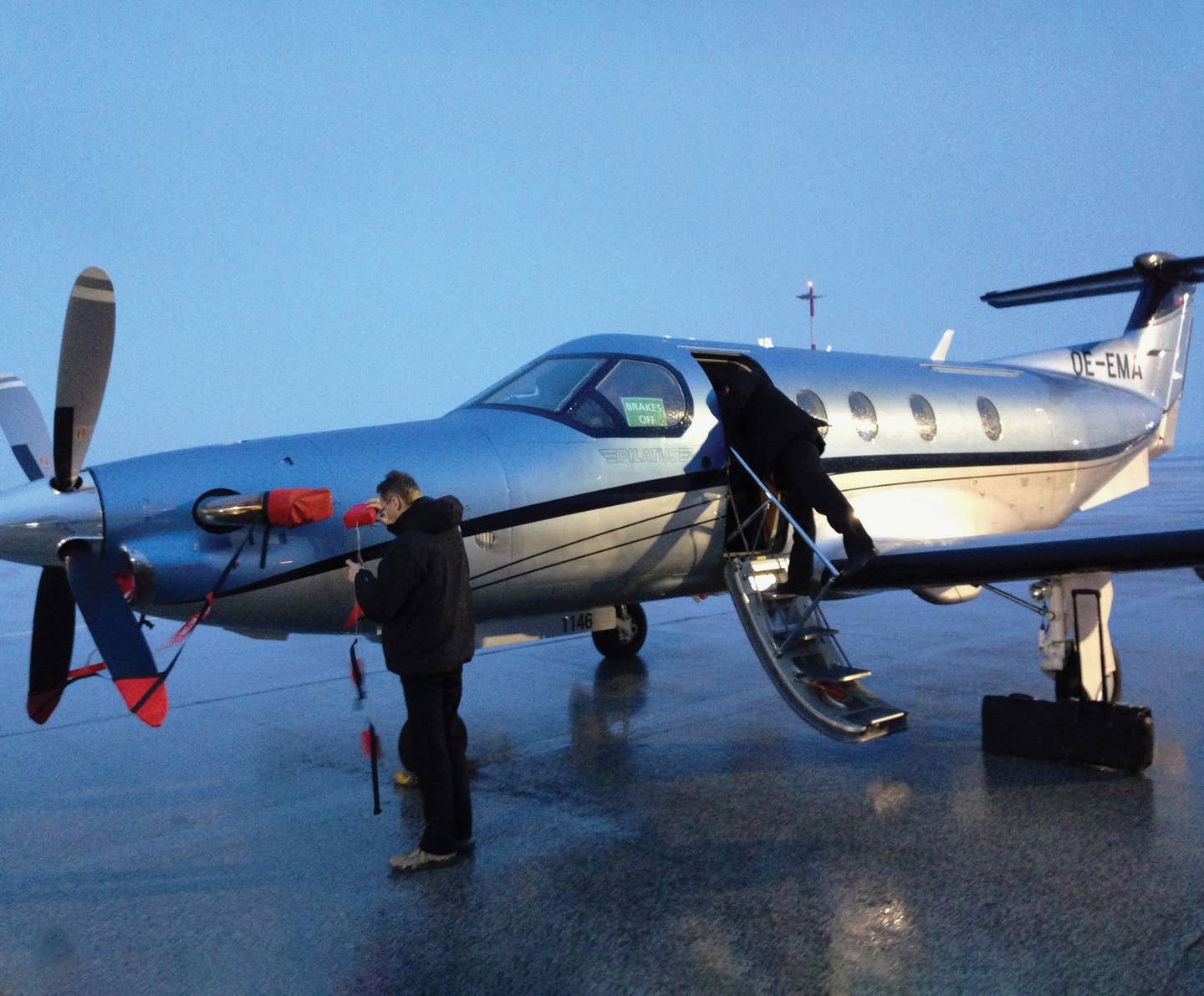Instructors: Finding The Right One
While the right instructor can inspire and motivate, the wrong one can destroy the desire to fly
 |
| Photo By Rochelle Buley |
The 26-hour student pilot sees the numbers approaching. Though he's had problems with landings, he's determined to get it right this time. He eases back for the flare, watching the far end of the runway. He balloons too much. Suddenly, the instructor catches a word in his throat and lurches forward. He grabs the yoke, makes the landing and yells, "What were you thinking? I've shown you a million times!" Embarrassed and frustrated, the student quits. He never flies again.
This story was shared in an online aviation forum. The sad part is that it's not unique: AOPA estimates that two out of every three students quit during flight instruction. Conflict with an instructor is one of the most common reasons. How could an industry as regulated and structured as aviation breed so many bad student-instructor relationships? Out on the flight lines of America, can the situation really be that bad?
The Problem
Michael Gaffney, 2007 FAA National Flight Instructor of the Year and a National Association of Flight Instructors (NAFI) Master CFI, says, "This is an industry-wide, systemic problem. The fundamental issue is that not everyone who's a great pilot is a good instructor."
 Gaffney is a FAASTeam representative, an ATP, a CFI and a CFII with more than 3,500 hours of experience. He's also president of Skyline Aeronautics (www.skylineaero.com), a full-service FBO in Missouri. "As the airlines drain the supply of good instructors, we see more and more inexperienced instructors who are just building time and have no passion for what they're doing," he says. "It breeds an environment for bad student relationships. Still, there are good instructors out there. Students have to know that getting a CFI rating has nothing to do with teaching ability. Prospective students must use many resources to find a good instructor."
Gaffney is a FAASTeam representative, an ATP, a CFI and a CFII with more than 3,500 hours of experience. He's also president of Skyline Aeronautics (www.skylineaero.com), a full-service FBO in Missouri. "As the airlines drain the supply of good instructors, we see more and more inexperienced instructors who are just building time and have no passion for what they're doing," he says. "It breeds an environment for bad student relationships. Still, there are good instructors out there. Students have to know that getting a CFI rating has nothing to do with teaching ability. Prospective students must use many resources to find a good instructor."
Spin and emergency maneuver instructor Rich Stowell is a 2006 FAA National CFI of the Year and a NAFI Master CFI. He adds another perspective: "Traditionally, in aviation, instructing has been looked at as a low-pay, low-skills, transient position. That breeds an attitude that doesn't promote excellence. Also, students are led to believe that instructors are a dime a dozen."
Indeed, both men agree that flight instructing has become a commodity. "Instructors don't treat it professionally," comments Stowell. "Too many just want to build time quickly and move on." Gaffney adds, "These younger instructors are trained in flying, but they're not trained in the ability to transfer knowledge. Until that changes, you'll have discouraged students."
| Red Flags When flying with an instructor for the first time, here are some potential warning signs of difficult times ahead. |
| 1 No Syllabus. A syllabus is a structured training plan. Some freelance instructors may suggest "playing it by ear" when instructing. Problem is, you can't manage what you don't measure. A syllabus gives you specific goals to gauge your progress against. An instructor without a syllabus could be wasting your money. |
| 2 Too Much, Too Soon. In flying, we build upon precepts: We learn something and build on that. Some instructors will have students flying instrument approaches before they even solo. Training should be targeted to the Practical Test Standards and not personal whims. Advanced training too early is useless and could be a warning sign that the instructor has a selfish agenda. |
| 3 "Fuel" Cross-Countries. With the high price of fuel, some instructors will use training as an opportunity to fuel their own airplanes. We spoke with students whose instructors had them fly "cross-countries" at every lesson to get cheap fuel, explaining that it "teaches them a valuable skill." While that can be argued, such flights can be counterproductive and overwhelming to a new student. |
| 4 Grabbing Controls. While an instructor may suddenly take the controls in an emergency, a good instructor won't grab the controls without warning. Positive transfer of control should always be exercised; an instructor who constantly grabs flight controls without warning may have fear or control issues. |
| 5 Odd Habits. An instructor who displays odd personal habits might be a red flag. We spoke with students whose instructors prayed loudly or engaged in religious rituals before or after flights. Such displays should be discussed with students and are acceptable only if both parties agree and are comfortable with them. These displays aren't the norm. |
| 6 Anger Or Criticism. An instructor, no matter how militaristic, should never berate, scare or belittle a student. Corrections can be given to a student with calm professionalism and constructive follow-up. Instructors who show visible frustration and outright anger aren't conducive to effective learning. |
| 7 Lack Of Professionalism. Instructors don't have to dress like executives to be good at what they do. Personal appearance, however, can be indicative of their feelings toward their job. Beware of instructors who look like they don't care, constantly show up late or always have an excuse for canceling flights. Avoid instructors who constantly criticize the FBO and other students, or who generally display antagonism or a poor attitude. |
| 8 Bad Equipment. Some freelance instructors utilize their own airplanes for training. Be wary of airplanes that are poorly maintained or require numerous "tricks" to get them running or flying properly. Make sure instruments, controls and electronics are in working order. Beware of highly modified airplanes. Even if you learn in one, you'll eventually rent from an FBO with more conventional equipment. |
| 9 Poor Judgment. Beware of instructors who don't perform preflight inspections, use checklists or other accepted procedures. These same instructors might do impromptu aerobatics, use highly suspect training methods or engage in abrupt maneuvering. They may decide to fly in poor weather and break regulations because "that's how it's done in real flying." Trust your instincts here. Run! |
| 10 Zero Progress. If you're not progressing at all, you need to fly with a different instructor for an evaluation or stage check. While we all learn at different paces, some progress should be evident. Evaluate your progress against the syllabus and ask the instructor what changes he or she suggests. |
One Solution: Passion
In speaking with both Stowell and Gaffney, their passion and love for instructing is undeniable. "Passion is the key," says Stowell. "You have to take an eager student and feed that student, nourish that student." He recommends finding instructors who exude passion and a love of flying. "A passionate instructor talks about flying differently than someone who's just building hours. They're motivated and interested in teaching the skills and fun of flying."
Stowell continues, "The old military approach doesn't apply in today's world. That system was designed to wash out as many pilots as possible so the cream of the crop would be left and sent to war. Today, if a student has problems, we try things outside the mold."
Judy Phelps is a NAFI and IAC Master CFI-Aerobatic and a Ninety-Nines 2006 Woman Pilot of the Year. She's vice president of CP Aviation (www.cpaviation.com) in Santa Paula, Calif., one of the nation's top emergency maneuver and aerobatic training schools. She echoes the need for passion in flight instructing. "You have to do it because you love it," says Phelps. "You have to have patience, and you have to love seeing a student's face light up when he or she gets something! Not all young instructors are bad. Some are in it for themselves and are just building time, but others do care. Don't discount a young instructor," she warns. "Look for patience, kindness and a love of teaching. Those things will become obvious as you talk to them."
 |
| With the help of a passionate, patient instructor, students can overcome any anxiety they experience in their flight training. |
Warning Signs
Some students find themselves frustrated and consider quitting; they don't know enough to recognize the problem. Could it be they're not "cut out" for aviation?
First, not every plateau in progress is due to a bad instructor. Students should realize that some frustration during flight training is natural. Second, judging your progress against another student's is an easy way to get frustrated, but it may not be indicative of a bad instructor. "Minimum hours are unrealistic today," warns Stowell. "Aviation has become so complex that we've lost focus of basic skills. Concentrate on your overall progress."
Phelps says factors like age and learning style affect progress. "We all learn at a different pace," she says. "The key is looking for some kind of progress. You may not solo at 12 hours, but if you're frustrated at not soloing at 35 hours, then you need to talk frankly with your instructor." She adds, "I've never had a student I couldn't teach."
Obvious things to look for include instructors who yell, become irate or belittle the student. "That instructor should be dropped right away," cautions Stowell. "There's no reason for that today."
Instructors who always take last-minute control of the airplane, show fear or demonstrate a lack of confidence are also showstoppers. "There are too many students out there being taught by instructors who are scared," notes Stowell. "A simple example is many instructors' approach to stalls---it breeds scared students."
Stowell warns against instructors who won't let the student make mistakes. "A good instructor knows how far to let a student go to a make a mistake and still be safe," he emphasizes. "It's an important part of learning."
Stowell also comments about the demeanor required of good instructors. "A good CFI is always calm, quiet and confident," he smiles. "We learn to only sweat on one side of our bodies."
Ultimately, anytime a student feels that something is wrong or feels anger, resentment or frustration toward the training, he or she should seriously consider a change. That applies to anyone, whether they're in basic flight training or seeking an advanced rating.
| Tips To Train By Whether you're a new student pilot or are training for advanced ratings, here are some tips to help you minimize the chance of getting frustrated and quitting. |
| 1 Start At NAFI. The National Association of Flight Instructors maintains rigorous requirements to become a certified or master instructor. NAFI instructors are passionate, disciplined and love flying and instructing. NAFI offers an online instructor search by region at www.nafinet.org/directory/flight_lookup.html. |
| 2 Find A Mentor. A mentor is an advisor or counselor. His or her primary purpose is to act as a sounding board for your questions, concerns or frustrations. Mentors are like a support group. Find a mentor through AOPA's Project Pilot program (www.aopaprojectpilot.org) or confide in a friend who's an active pilot. Studies have proven that having a mentor dramatically increases your chances of training success. |
| 3 Pre-Interview Your Instructor. This advice was echoed by all of our instructor experts. Any good instructor will welcome being interviewed. Ask what will be expected of you, what the instructor's teaching philosophy is and what their past students have accomplished. Like a job interview, ask open-ended questions to get to know the instructor. |
| 4 Set A Trial Period. Upon signing up with a new instructor, agree to three or four flights, after which you'll each evaluate how your relationship is developing. Agree that you may decide to switch instructors based on your experience during those first few flights. |
| 5 Set Realistic Expectations. Don't focus on minimum hours. Don't rush. Focus on setting personal goals and measuring your progress against those target goals. Constantly reevaluate your progress with your instructor. Realize that at 50, you don't learn as fast as when you were 20. Allow for plateaus in your learning---especially during landings. |
| 6 Change It Up. Periodically fly with a different instructor. You'll feel refreshed, renewed and you'll learn something every time. Changing instructors for a short time is one of the secrets of successful training. |
| 7 Be Prepared. Do your part as a student. Flying isn't a hobby you can do once a month. Commit to studying and preparing for each lesson. Be on time, ask questions, be organized and ask your instructor what you can do to improve your progress. |
| 8 Communicate Fear. All our instructors report that fear is something that concerns many students. Most students are afraid to admit to fear or anxiety. Luckily, this is a normal emotion during flight training. Communicate your fear to your instructor, who will help you deal with the anxiety you may be experiencing. |
| 9 Report And Switch. If you do have a horrible instructor experience, discuss it with the chief pilot immediately. Switch instructors and don't let anyone talk you into continuing in a bad instructor scenario. If it's a grievous violation, most FSDO's have an "Aviation Safety Counselor" that will take a report. Always speak with the offender and FBO owner/chief pilot first. |
Making The Change
"Some students think it's bad to switch instructors," says Gaffney. "Of course, that's not true. In aviation it's considered normal to switch instructors or even flight schools. There's no shame in that. You'll be amazed at the difference changing instructors makes."
 Stowell recommends taking time to find a good instructor. "Interview instructors and find out what kind of people they are," he suggests. "Ask them questions about how they teach and what their experience is. You can find out if they're passionate about aviation or are just looking to build time." He adds, "Treat it like finding a doctor."
Stowell recommends taking time to find a good instructor. "Interview instructors and find out what kind of people they are," he suggests. "Ask them questions about how they teach and what their experience is. You can find out if they're passionate about aviation or are just looking to build time." He adds, "Treat it like finding a doctor."
Phelps suggests setting a fixed period to "try out" an instructor. She tells students to "set a specific number of flights---three or four---after which you'll both decide if the relationship is working."
Gaffney recommends that students start their search at the National Association of Flight Instructors. "NAFI instructors have to want to be good teachers to become certified," he relates. "They have to write articles, talk to groups, teach seminars and meet specific criteria to become certified. NAFI instructors have to have passion in their gut."
If it's just not working, make the switch and don't look back. Don't waste time hoping the situation will get better. Like a bad romantic relationship, it will only get more destructive. Procrastination will cost you in more ways than just financial.
 The Good Ones Are Out There
The Good Ones Are Out There
There's a common trait evident in all the instructors we spoke with---their intense commitment to instructing and their passion for aviation. That passion comes through in just minutes of conversation.
The good news is that there are many great instructors out there. The bad ones---the ones who don't care and are destructive to students---are the exception. With a little homework and some effort on the part of the student, the great ones can be found. Their careful teaching and helpful words will stay with a student throughout their flying career.
Each of us hopefully remembers a great instructor. Their words are like little angels that sit on our shoulder when the weather gets bad, the approach gets difficult or the wind shakes our confidence. We remember their calm words of encouragement and we automatically perform the tasks they taught us to do in those moments when fear has no place. Every student deserves an instructor like that.

Subscribe to Our Newsletter
Get the latest Plane & Pilot Magazine stories delivered directly to your inbox






